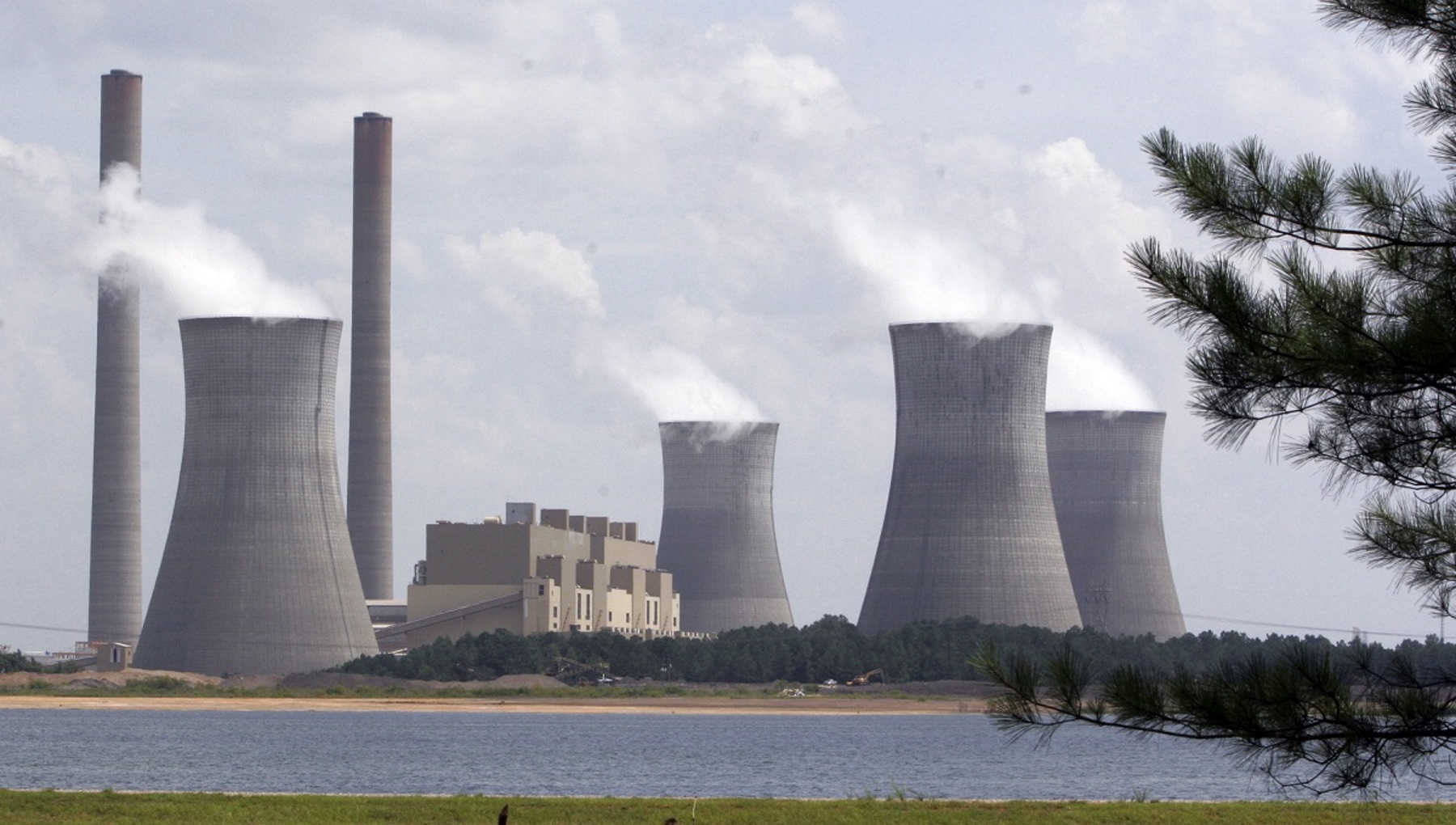Clean Power Plan Rollback: 5 Things To Know

Plant Scherer, near Macon, is one of the largest coal-fired power plants in the country.
Gene Blythe / Associated Press file
By Alisa Barba, Dan Boyce and Molly Samuel
The Environmental Protection Agency on Tuesday signed a proposal to repeal the Clean Power Plan, President Barack Obama’s signature climate change legislation.
Here are five things to know:
What Is The Clean Power Plan Anyway?
The 2015 rule aimed at reducing carbon emissions nationwide by moving the country’s electric grid away from coal and toward cleaner sources of energy. It was this nation’s most ambitious proposal to fight climate change. Here’s video explainer of the whole plan.
The goal was to cut the electric power sector’s carbon pollution by 32 percent nationally, relative to 2005 levels. Each state was given a different target, depending on their power sources, and all states were given a flexible template on how to reach those emissions’ targets. Georgia’s emissions reduction target was 34 percent. (See nationwide reduction targets here.)
Who Is Happy About The Repeal, And Why?
Twenty-seven states sued the federal government over the plan in 2015, including Georgia. The rule would have led to higher costs and fewer jobs, then-Georgia Attorney General Sam Olens said.
Scott Pruitt, the current Environmental Protection Agency administrator, was one of the biggest critics of the plan. He also joined lawsuits against the CPP when serving as attorney general of Oklahoma. The central argument for critics of the plan was that the Obama administration’s EPA overreached — the EPA went beyond its legal authority by encouraging utilities to find cleaner sources of power outside the coal plants themselves.
Who Is Unhappy About The Repeal, And Why?
There are a whole range of groups and people unhappy about the repeal. Environmentalists have led the charge, saying the Trump administration’s move is illegal and dangerous.
“This marks a dereliction of duty at precisely the moment when we need strong action from the EPA to help protect our Southeastern communities from worsening storms and sea level rise,” Nat Mund, director of federal affairs at the Southern Environmental Law Center, said in a statement.
Leaders from some states also weighed in, with New York Attorney General Eric Schneiderman threatening to sue to block the Trump administration’s move.
What Does It Mean To The Average Consumer?
Short answer: not much. The Clean Power Plan never went into effect after facing an array of legal challenges. Had it been implemented, electricity costs may have gone up slightly over the short term, but would have evened out over the long term, most experts believed.
In the meantime, many states are already well on their way to meeting emissions reduction targets similar to or even more aggressive than those in the Clean Power Plan. In Colorado, for instance, power generators are planning for a carbon-constrained future as the state requires utilities to get 30 percent of their electricity from renewables by 2020.
Georgia doesn’t have targets, but energy-related carbon emissions decreased by about 17 percent between 2000 and 2014 in the state, according to the U.S. Energy Information Administration. And in Atlanta, the City Council approved a resolution this year for a 100 percent renewable goal for city buildings by 2025 and the whole city by 2035.
Georgia Power has closed some coal-fired power plants and converted others to burn natural gas instead, which is cheaper. And state utility regulators have urged the utility to build more solar.
What Happens Next?
Sit around and wait. At a rally in Alabama last month, Trump said the Clean Power Plan was, “Boom, gone.” Not that fast.
To repeal a regulation, the new administration has to go through the same rule-making process used to create the original regulation. That process requires public notice and comments and could take as long as a year.
While EPA administrator Pruitt has said he may propose a less stringent replacement rule (something that many in the industry have asked for), he has yet to follow through on the “repeal and replace” promise.
The Trump administration has repeatedly said that this repeal, along with other environmental rules rolled back, has “ended the war on coal.” There are few indications that the repeal will bring back coal or increase the number of coal jobs nationwide. Coal is facing economic pressures from cheap natural gas, and, over the long term, most utilities and power generators believe the cutting carbon emissions will be a goal that will outlive this administration.
The original version of this story was published by Inside Energy.







